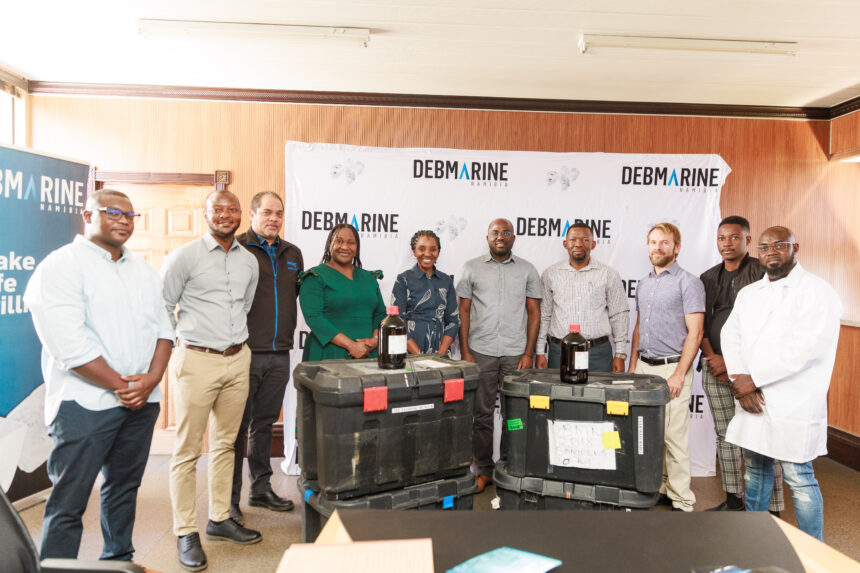Debmarine Namibia has sponsored surplus benthic samples to four institutions, contributing to scientific research, education and the enhancement of knowledge about the marine environment. These institutions include the Ministry of Fisheries and Marine Resources, the Ministry of Education, Directorate of National Heritage and Culture Programmes, University of Namibia (UNAM), and the Namibia University of Science and Technology (NUST).
Debmarine Namibia’s Chief Executive Officer, Willy Mertens, reiterated the company’s commitment to environmental stewardship and fostering meaningful partnerships with these institutions. He emphasized that the company operates in the offshore realm, with immediate communities acting as guardians of the vast Atlantic Ocean. “One of our core initiatives is the benthic monitoring programme, which assesses the impact of our recovery operations on the benthic communities in the Atlantic 1 Mining Licence Area. This programme also monitors the recovery time after recovery activities. Annually, between October and December, we collect benthic samples from designated control, impact and natural variability sites across the mining license area. This commitment to comprehensive data collection and analysis demonstrates our dedication to understanding and minimising our environmental impact. These samples have been collected for the past three years, with an investment of over N$20 million.”
Mertens mentioned that the company’s utmost respect for the marine environment includes the recovery process involving the extraction of diamondiferous gravel from the ocean floor at depths reaching 140 meters. Notably, 80% of the extracted material is returned to the seabed, showcasing the company’s dedication to sustainable practices. To ensure operations align with the highest environmental standards, Debmarine Namibia has obtained certification to the ISO 14001 international standard. This certification establishes stringent requirements for an environmental management system that supports environmental protection, pollution prevention, and compliance with legal obligations. It also emphasizes the importance of socio-economic considerations and close collaboration with key stakeholders.
Debmarine Namibia’s Chief Environmental Scientist, Dr. Deon Louw, highlighted the significance of partnerships in achieving the company’s environmental goals. “We work closely with the Benguela Current Commission, a multinational cross-sectoral initiative involving Angola, Namibia, and South Africa. In 2012, the company took a significant step by initiating the establishment of the Marine Scientific Advisory Committee (MSAC). This committee comprises independent scientists from various local and South African universities, as well as experts from the De Beers group. This year, international scientists have been added to MSAC as well. The philosophy that underpins Debmarine Namibia, as reflected in our Company’s Environmental Policy, is a commitment to continual improvement in our environmental management practices. By closely monitoring the key characteristics of our operations, we aim to minimise any potential negative impacts on the environment. Our ISO 14001 Environmental Management System compels us to raise environmental awareness and foster a sense of individual responsibility among our employees and our nation at large.”.
Associate Professor of Medical Biochemistry at NUST, Professor Lameck Mwapagha, Head of Environmental Science at UNAM, Dr. Eliakim Hamunyela, and Chief Curator at the National Museum of Namibia, Dr. Francois Becker, received the samples on behalf of their institutions. They appreciate the importance of partnerships that will enable scholars to add value to scientific research in the Atlantic Ocean.


